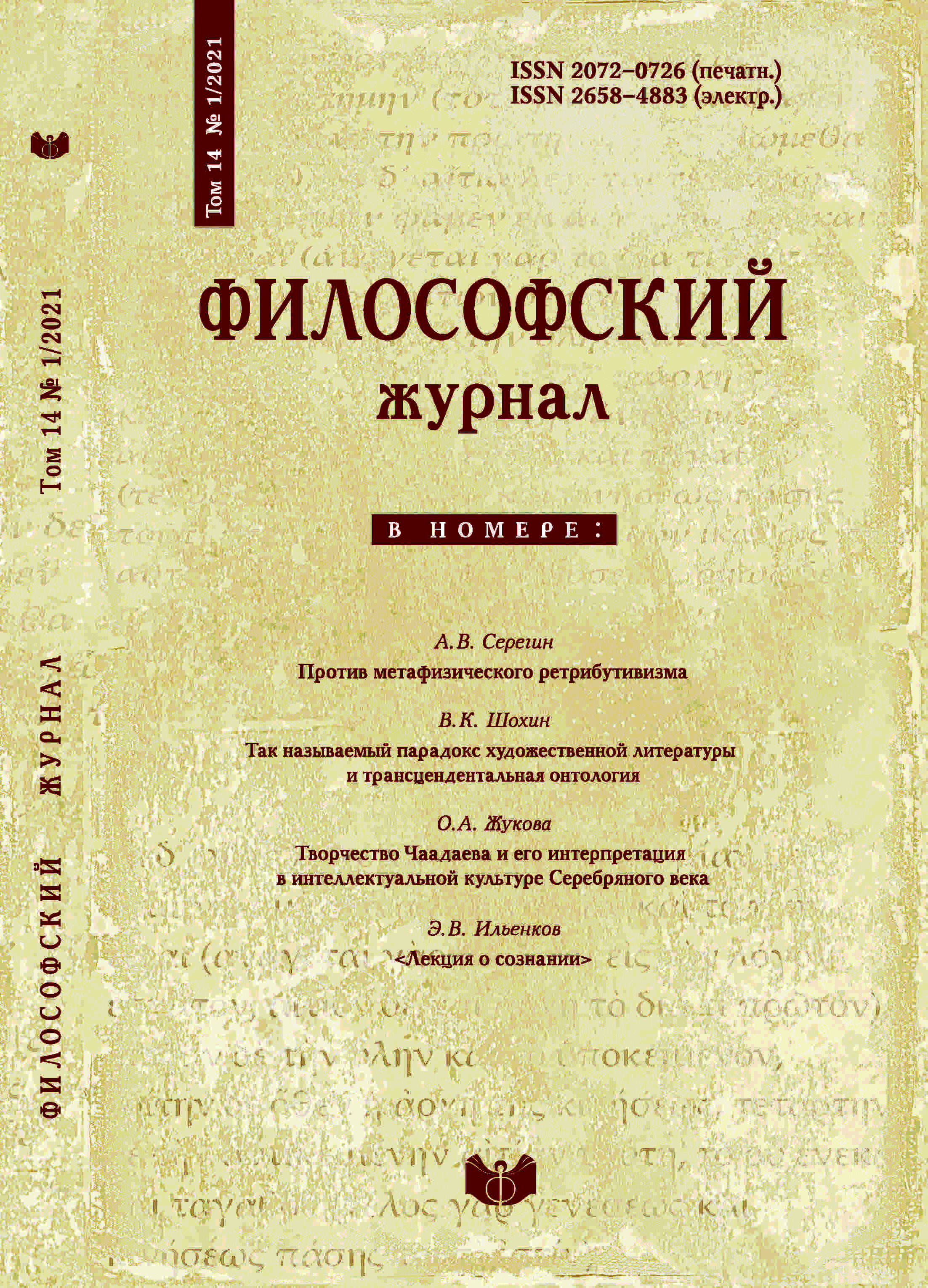A lecture on mind
(preface and notes by Andrei D. Maidansky)
DOI:
https://doi.org/10.21146/2072-0726-2021-14-1-162-172Keywords:
conscious mind, sensual perception, language, will, categories, reason, logical thinking, Ilyenkov, SellarsAbstract
The archive of the Soviet Marxist philosopher Evald Ilyenkov contains a draft of a lecture on the nature of human mind. This was one of the lectures that Ilyenkov gave for senior students of the philosophical faculty at Moscow State University in 1953–1955. His thought runs counter to the concept of the mind as a function of the brain that “copies and photographs” the outside world by means of the senses (an understanding that dominated the Soviet philosophy). Ilyenkov asserts that the conscious mind is formed through the work of the logical categories, which constitute the social reason. In the Foreword to the publication, a parallel is drawn between the criticism of the sensationalist model of mind by Ilyenkov and Wilfrid Sellars, the founder of the “analytic philosophy of mind”. Both philosophers place language between “raw” sensual perceptions and the human mind. However, for Sellars language is the creator of the conscious mind, whereas for Ilyenkov language is only an instrument of reason, which allows it to pick out the perceptions that are significant for other people filtering away everything else. The logical structure of language is determined by the categories of the singular and the universal, by affirmation and negation, cause and effect, etc. With the help of the categories of reason, an individual transforms their sensual impressions into “facts of consciousness”. Active focusing on the similarities and differences of sensible objects, on how one perception follows another, etc. constitutes the primary activity of will. Ilyenkov points out that this purposefulness of sensory contemplation is what distinguishes man from animals. If language forms the first “floor” of consciousness, then its upper “floor” is logical thinking. The latter discovers causal relationships of things and the laws of nature. The contents of such thought do not depend on will and consciousness, they are objectively true.






